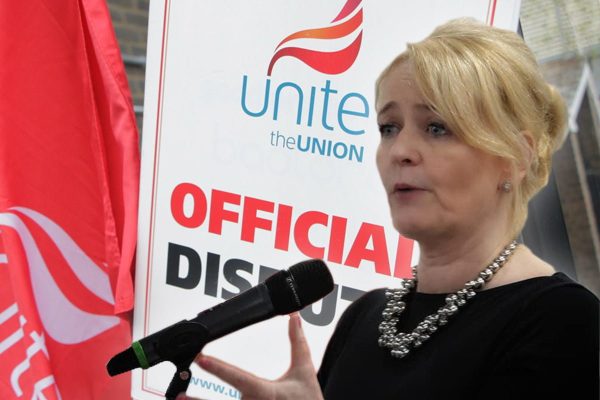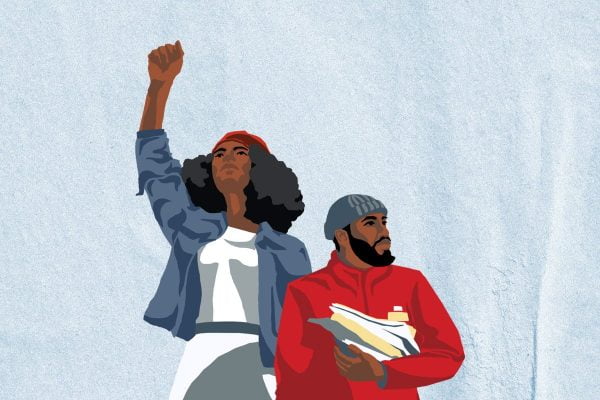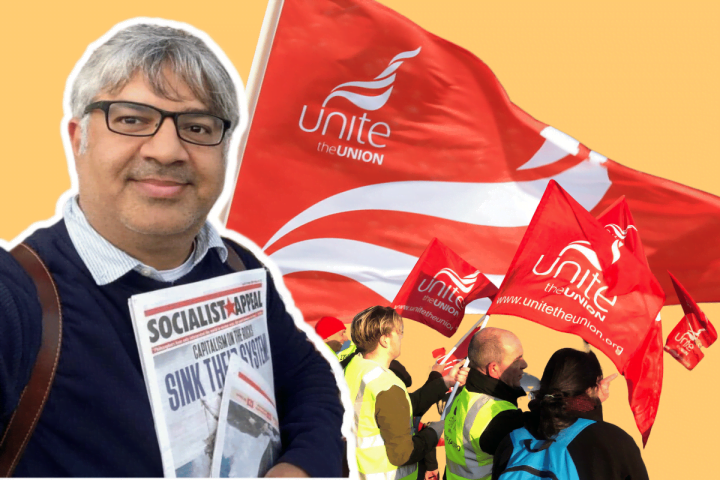From 27 March to 25 April, Unite members will get to vote in the union’s Executive Council (EC) elections.
These elections are set to determine the future direction of the union, with its one-million-strong membership, in a time of sharpening class struggle in Britain.
Unite members have often been at the forefront of the wave of industrial action that has swept the country over the past year: on the buses and docks; at refineries and hospitals – and with many inspiring victories along the way.
This resurgence in strike activity has been overseen by general secretary Sharon Graham.
Graham has presided over changes that have emboldened rank-and-file members to take action against the bosses – particularly against pitiful real-terms pay cuts and attacks on conditions.
These EC elections now present an opportunity to continue this process of transforming our union, ensuring that it is fit to fight the battles ahead.
Leadership

There are primarily two slates standing in these elections. One, running under the ‘Members First’ banner, is made up of supporters of the United Left (UL) faction.
UL represents the past period of class conciliation in the union, under Len McCluskey. They currently have a majority on the EC.
Now, with capitalism in crisis, and new attacks on our wages and conditions looming, it is time for a new generation of leaders to come to the fore. Those playing a negative role, appealing for workers to show restraint instead of militancy, should stand aside.
Another slate of candidates are running: those who support the direction the union is heading under Graham. These activists want a union that is focused on using its industrial might to win for members, by taking bold action.
I am standing as part of this slate, for the education sector seat, having received 17 nominations from local branches.
I support our general secretary’s goal of building a union that is set on winning for members on jobs, pay, and conditions.
But more than that, I think our union has a key role to play in the transformation not only of our workplaces and our movement, but of society as a whole.
We have the size and strength to be leading the resurgent labour movement, in a struggle against this criminal Tory government and the capitalist system they represent.
But this requires a bold, united leadership at the head of our union, capable of mobilising and inspiring rank-and-file members, and putting forward a clear programme for socialist change.
Unite has a responsibility to step up to this task.
Determination

Our union has stood out in recent weeks, taking a firm stance against rotten deals from the employers. In the shoddy ‘deal’ reached by health unions, for instance, Unite is the only union to be recommending rejection, reflecting the mood of the membership.
In local disputes also, our members are showing their determination to confront the bosses and demand better.
At Imperial College London (ICL), for example, Unite members are now in their fifth month of strike action, following rejection of a 3.3% pay offer. Meanwhile, the university has an income of over £1.2 billion (2021/22) and reserves of £1.7 billion.
I recently spoke at a well-attended branch meeting at ICL, discussing my candidacy, as well as hearing about their struggle. Members were very receptive about the need to change our union, and are clearly more than ready to continue fighting until this struggle is won.
This dispute is a microcosm of the class struggle in Britain. Wealthy institutions and employers on one side, offering up measly pay ‘rises’; low-paid, fed-up workers on the other, standing up in defiance.
This class war is only going to intensify. These Unite EC elections are a chance to prepare for battle, and to ensure that our members – like those at Imperial – get the militant leadership that they deserve: one made up of class fighters, willing to match their determination to organise and fight back.






